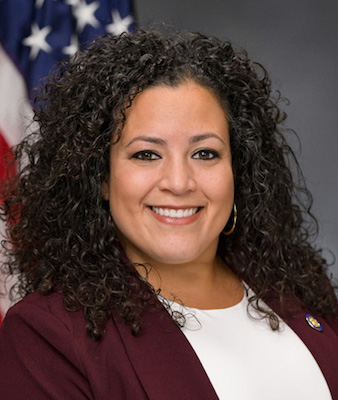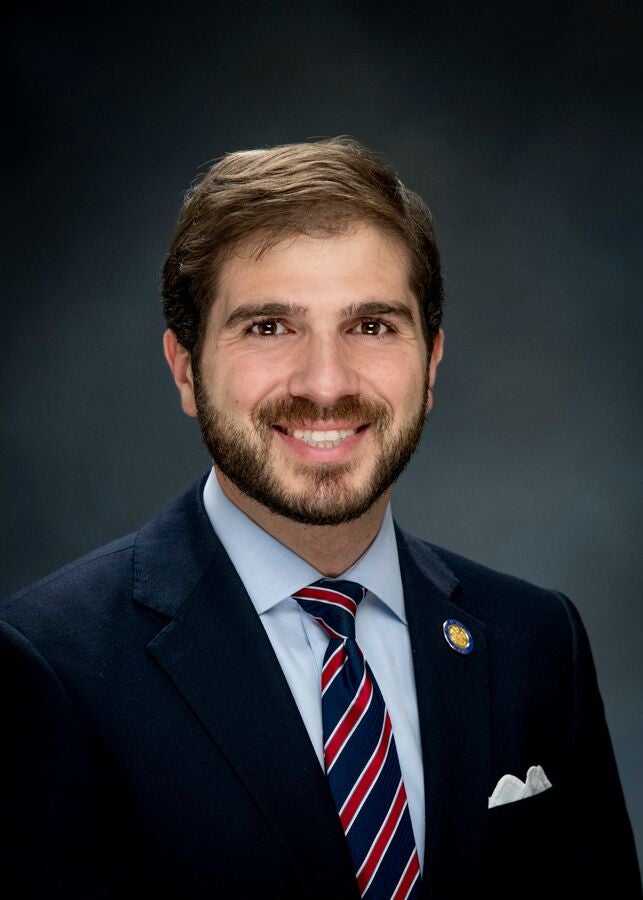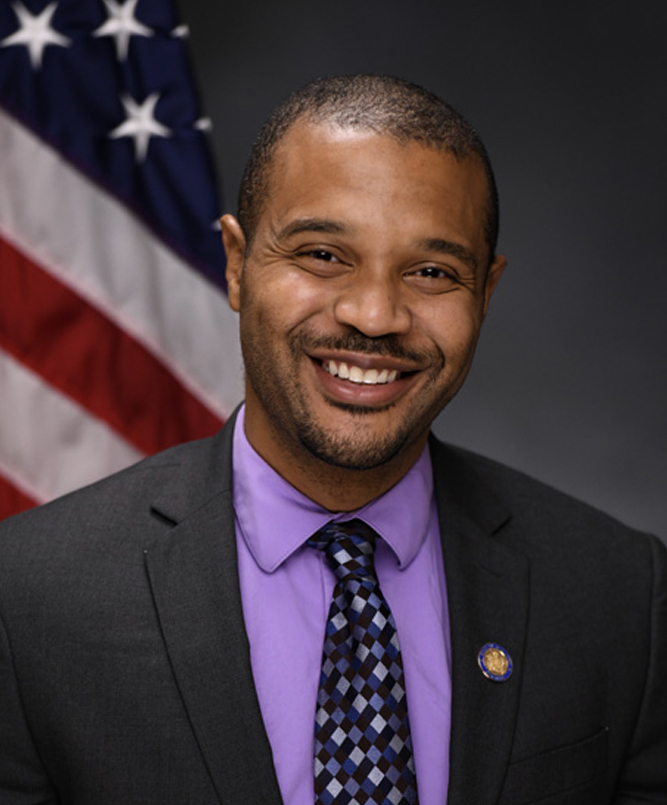(2) THAT TRANSFER POSES A THREAT TO THE HEALTH OR SAFETY OF THE PREG-
NANT PERSON OR THE PREGNANCY.
(II) "EMERGENCY MEDICAL CONDITION" INCLUDES, BUT IS NOT LIMITED TO,
ECTOPIC PREGNANCY; COMPLICATIONS OF OR RESULTING FROM PREGNANCY, PREG-
NANCY LOSS, OR ATTEMPTED TERMINATION OF PREGNANCY; RISKS OF INFECTION;
RISKS TO FUTURE FERTILITY; SEPSIS; ACUTE BLOOD LOSS; PREVIABLE PRETERM
PREMATURE RUPTURE OF MEMBRANES OR CERVICAL INSUFFICIENCY; PLACENTA
ABNORMALITIES; ACUTE MENTAL ILLNESS; ACUTE OR EMERGENT HYPERTENSIVE
DISORDERS, SUCH AS PREECLAMPSIA, OR ANY OTHER CONDITION A HEALTH CARE
PRACTITIONER LICENSED, CERTIFIED, OR AUTHORIZED UNDER TITLE EIGHT OF THE
EDUCATION LAW, ACTING WITHIN THEIR LAWFUL SCOPE OF PRACTICE DETERMINES,
IN THE PRACTITIONER'S REASONABLE MEDICAL JUDGMENT, TO BE AN EMERGENCY AS
DEFINED IN THIS PARAGRAPH.
(B) "STABILIZE" SHALL MEAN, WITH RESPECT TO AN EMERGENCY MEDICAL
CONDITION DESCRIBED IN CLAUSE (A) OF SUBPARAGRAPH (I) OF PARAGRAPH (A)
OF THIS SUBDIVISION, TO PROVIDE SUCH MEDICAL TREATMENT OF THE CONDITION
AS MAY BE NECESSARY TO ASSURE, WITHIN REASONABLE MEDICAL PROBABILITY,
THAT NO MATERIAL DETERIORATION OF THE CONDITION IS LIKELY TO RESULT FROM
OR OCCUR DURING THE TRANSFER OF THE INDIVIDUAL FROM A FACILITY, OR, WITH
RESPECT TO AN EMERGENCY MEDICAL CONDITION DESCRIBED IN CLAUSE (B) OF
SUBPARAGRAPH (I) OF PARAGRAPH (A) OF THIS SUBDIVISION, TO DELIVER,
INCLUDING THE PLACENTA. "STABILIZING TREATMENT" INCLUDES ABORTION PURSU-
ANT TO SECTION TWENTY-FIVE HUNDRED NINETY-NINE-BB OF THIS CHAPTER WHEN
FAILURE TO PROVIDE AN ABORTION WILL, WITHIN REASONABLE PROBABILITY,
RESULT IN MATERIAL DETERIORATION OF THE PATIENT'S CONDITION UPON OR
DURING TRANSFER OF THE PATIENT FROM THE FACILITY.
(C) "TRANSFER" SHALL MEAN THE MOVEMENT, INCLUDING THE DISCHARGE, OF AN
INDIVIDUAL OUTSIDE OF A GENERAL HOSPITAL'S FACILITIES AT THE DIRECTION
OF ANY PERSON EMPLOYED BY, OR AFFILIATED OR ASSOCIATED, DIRECTLY OR
INDIRECTLY, WITH, THE GENERAL HOSPITAL, BUT DOES NOT INCLUDE THE MOVE-
MENT OF AN INDIVIDUAL WHO (I) HAS BEEN DECLARED DEAD, OR (II) LEAVES THE
FACILITY WITHOUT THE PERMISSION OF ANY SUCH PERSON.
(D) "APPROPRIATE TRANSFER" SHALL MEAN A TRANSFER TO A MEDICAL FACILI-
TY:
(I) IN WHICH THE TRANSFERRING GENERAL HOSPITAL PROVIDES THE MEDICAL
TREATMENT WITHIN ITS CAPACITY WHICH MINIMIZES THE RISKS TO THE INDIVID-
UAL'S HEALTH;
(II) IN WHICH THE RECEIVING FACILITY:
(A) HAS AVAILABLE SPACE AND QUALIFIED PERSONNEL FOR THE TREATMENT OF
THE INDIVIDUAL; AND
(B) HAS AGREED TO ACCEPT TRANSFER OF THE INDIVIDUAL AND TO PROVIDE
APPROPRIATE MEDICAL TREATMENT;
(III) IN WHICH THE TRANSFERRING GENERAL HOSPITAL SENDS TO THE RECEIV-
ING FACILITY ALL MEDICAL RECORDS RELATED TO THE EMERGENCY CONDITION FOR
WHICH THE INDIVIDUAL HAS PRESENTED AVAILABLE AT THE TIME OF THE TRANS-
FER, INCLUDING RECORDS RELATED TO THE INDIVIDUAL'S EMERGENCY MEDICAL
CONDITION, OBSERVATIONS OF SIGNS OR SYMPTOMS, PRELIMINARY DIAGNOSIS,
TREATMENT PROVIDED, RESULTS OF ANY TESTS AND THE INFORMED WRITTEN
CONSENT OR CERTIFICATION OR COPY THEREOF PROVIDED UNDER SUBPARAGRAPH
(III) OF PARAGRAPH (D) OF SUBDIVISION THREE OF THIS SECTION, UNLESS THE
PATIENT OBJECTS;
(IV) IN WHICH THE TRANSFER IS EFFECTED THROUGH QUALIFIED PERSONNEL AND
TRANSPORTATION EQUIPMENT, AS REQUIRED, INCLUDING THE USE OF NECESSARY
AND MEDICALLY APPROPRIATE LIFE SUPPORT MEASURES DURING THE TRANSFER; AND
(V) IN WHICH PRIOR TO THE TRANSFER, THE EMERGENCY MEDICAL TECHNICIAN
OR PARAMEDIC ASSIGNED TO ACCOMPANY THE PATIENT IN THE AMBULANCE SHALL BE
S. 2165--A 3
PROVIDED WITH A COMPLETED FORM WHICH SHALL INCLUDE AT LEAST THE FOLLOW-
ING INFORMATION AND SUCH ADDITIONAL INFORMATION AS THE COMMISSIONER MAY
REQUIRE:
(A) THE PATIENT'S NAME;
(B) THE DIAGNOSED CONDITION OF THE PATIENT;
(C) ANY TREATMENT ADMINISTERED TO THE PATIENT;
(D) ANY MEDICATION GIVEN TO THE PATIENT;
(E) THE NAME OF THE HEALTH CARE PRACTITIONER ORDERING THE TRANSFER;
(F) THE NAME OF THE HOSPITAL FROM WHICH THE PATIENT IS BEING TRANS-
FERRED;
(G) THE NAME OF THE HEALTH CARE PRACTITIONER OR PRACTITIONERS WHO IS
OR ARE WILLING AND AUTHORIZED TO RECEIVE THE PATIENT AT THE NEW
LOCATION;
(H) THE NAME OF THE HOSPITAL OR OTHER FACILITY THAT IS TO RECEIVE THE
PATIENT;
(I) THE DATE AND TIME OF TRANSFER; AND
(J) THE SIGNATURE OF THE HEALTH CARE PRACTITIONER ORDERING THE TRANS-
FER.
THE FORM FOR THIS PURPOSE SHALL BE PROMULGATED BY THE COMMISSIONER AND
DISTRIBUTED TO ALL GENERAL HOSPITALS. THE COMPLETED FORM SHALL BE GIVEN
TO THE RECEIVING FACILITY UPON COMPLETION OF THE AMBULANCE TRIP FOR USE
BY THE RECEIVING HEALTH CARE PRACTITIONER.
2. Every general hospital AS DEFINED IN THIS ARTICLE shall admit any
person who is in need of immediate hospitalization with all convenient
speed and shall not before admission question the patient or any member
of [his or her] THE PATIENT'S family concerning insurance, credit or
payment of charges, provided, however, that the patient or a member of
[his or her] THE PATIENT'S family shall agree to supply such information
promptly after the patient's admission. However, no general hospital
shall require any patient or member of [his or her] THE PATIENT'S family
to write or to sign during those times when the religious tenets of such
person temporarily prohibit [him or her] SUCH PERSON from performing
such acts. No general hospital shall transfer any patient to another
hospital or health care facility on the grounds that the patient is
unable to pay or guarantee payment for services rendered. Every general
hospital which maintains facilities for providing out-patient emergency
medical care must provide such care to any person who, in the opinion of
a [physician] HEALTH CARE PRACTITIONER LICENSED, CERTIFIED, OR AUTHOR-
IZED UNDER TITLE EIGHT OF THE EDUCATION LAW, ACTING WITHIN THEIR LAWFUL
SCOPE OF PRACTICE, requires such care.
[2. In cities with a population of one million or more, (a) a general
hospital shall provide emergency medical care and treatment to all
persons in need of such care and treatment who arrive at the entrance to
such hospital therefor. Any general hospital which fails to provide such
treatment shall be guilty of a misdemeanor. However, the commissioner
may exempt a general hospital from the provisions of this paragraph if
he determines such general hospital is structured to provide specialized
or limited treatment.
(b) Any licensed medical practitioner who refuses to treat a person
arriving at a general hospital to receive emergency medical treatment
who is in need of such treatment; or any person who in any manner
excludes, obstructs or interferes with the ingress of another person
into a general hospital who appears there for the purpose of being exam-
ined or diagnosed or treated; or any person who obstructs or prevents
such other person from being examined or diagnosed or treated by an
attending physician thereat shall be guilty of a misdemeanor and subject
S. 2165--A 4
to a term of imprisonment not to exceed one year and a fine not to
exceed one thousand dollars. Any emergency medical technician, paramedic
or ambulance driver who transports a person to a general hospital where
such person is refused entrance by anyone or is refused examination,
diagnosis or treatment by an attending physician thereat shall report
all such incidents to the state commissioner of health or his designee,
on a form which shall be promulgated by such commissioner. After exam-
ination, diagnosis and treatment by an attending physician and where, in
the opinion of such physician, the patient has been stabilized suffi-
ciently to permit it, subsequent medical care may be provided or
procured by the general hospital at a location other than the general
hospital if, in the opinion of the attending physician, it is in the
best interest of the patient because the general hospital does not have
the proper equipment or personnel at hand to deal with the particular
medical emergency or because all appropriate beds are filled and none
are likely to become available within a reasonable time after the
patient has been stabilized.
(c) Whenever a previously stabilized emergency room patient is there-
after transferred for medical care to another location by means of an
ambulance, the attending physician authorizing the transfer in the
general hospital from which the patient is transferred shall determine
that a receiving hospital is available and willing to receive such
patient and that an attending physician thereat is available and willing
to admit such patient. Just prior to the transfer, the emergency medical
technician or paramedic assigned to accompany the patient in the ambu-
lance shall be provided with a completed form which shall include at
least the following information and such additional information as the
commissioner may require:
(i) the patient's name;
(ii) the diagnosed condition of the patient;
(iii) any treatment administered to the patient;
(iv) any medication given to the patient;
(v) the name of the physician ordering the transfer;
(vi) the name of the hospital from which the patient is being trans-
ferred;
(vii) the name of the physician or physicians who is or are willing
and authorized to receive the patient at the new location;
(viii) the name of the hospital or other facility that is to receive
the patient;
(ix) the date and time of transfer; and
(x) the signature of the physician ordering the transfer.
The form for this purpose shall be promulgated by the commissioner and
distributed to all general hospitals in any such city. The completed
form shall be given to the receiving facility upon completion of the
ambulance trip for use by the receiving physician.]
3. (A) EVERY GENERAL HOSPITAL MUST PROVIDE APPROPRIATE MEDICAL SCREEN-
ING EXAMINATION WITHIN THE CAPABILITY OF THE GENERAL HOSPITAL'S EMERGEN-
CY DEPARTMENT, INCLUDING ANCILLARY SERVICES ROUTINELY AVAILABLE TO THE
EMERGENCY DEPARTMENT WHEN A REQUEST IS MADE BY AN INDIVIDUAL OR ON THE
INDIVIDUAL'S BEHALF FOR EXAMINATION OR TREATMENT FOR A MEDICAL CONDITION
TO DETERMINE WHETHER AN EMERGENCY MEDICAL CONDITION EXISTS. WITH RESPECT
TO A PREGNANT PERSON, SUCH MEDICAL SCREENING EXAMINATION MUST INCLUDE A
DETERMINATION BY A HEALTH CARE PRACTITIONER LICENSED, CERTIFIED, OR
AUTHORIZED UNDER TITLE EIGHT OF THE EDUCATION LAW, ACTING WITHIN THEIR
LAWFUL SCOPE OF PRACTICE AS TO WHETHER THE INDIVIDUAL IS IN ACTIVE
LABOR. A GENERAL HOSPITAL MAY NOT DELAY PROVISION OF AN APPROPRIATE
S. 2165--A 5
MEDICAL SCREENING EXAMINATION OR FURTHER MEDICAL EXAMINATION, AND TREAT-
MENT REQUIRED UNDER PARAGRAPH (B) OF THIS SUBDIVISION IN ORDER TO
INQUIRE ABOUT THE INDIVIDUAL'S METHOD OF PAYMENT OR INSURANCE STATUS.
(B) IF ANY INDIVIDUAL COMES TO A GENERAL HOSPITAL AND THE GENERAL
HOSPITAL DETERMINES THAT THE INDIVIDUAL HAS AN EMERGENCY MEDICAL CONDI-
TION, THE GENERAL HOSPITAL MUST PROVIDE EITHER:
(I) WITHIN THE STAFF AND FACILITIES AVAILABLE AT THE GENERAL HOSPITAL,
SUCH FURTHER MEDICAL EXAMINATION AND SUCH TREATMENT AS MAY BE REQUIRED
TO STABILIZE THE MEDICAL CONDITION; OR
(II) FOR TRANSFER OF THE INDIVIDUAL TO ANOTHER MEDICAL FACILITY IN
ACCORDANCE WITH PARAGRAPH (F) OF THIS SUBDIVISION.
(C) ADMISSION OF AN INDIVIDUAL EXPERIENCING AN EMERGENCY MEDICAL
CONDITION DOES NOT RELIEVE A GENERAL HOSPITAL OF THE OBLIGATION TO
PROVIDE ANY SUCH TREATMENT THAT, WITHIN REASONABLE PROBABILITY, WILL
PREVENT MATERIAL DETERIORATION OF THE PATIENT'S CONDITION.
(D) A GENERAL HOSPITAL IS DEEMED TO MEET THE REQUIREMENT OF PARAGRAPH
(B) OF THIS SUBDIVISION WITH RESPECT TO AN INDIVIDUAL IF THE GENERAL
HOSPITAL OFFERS THE INDIVIDUAL THE FURTHER MEDICAL EXAMINATION AND
TREATMENT DESCRIBED IN SUCH SUBDIVISION AND INFORMS THE INDIVIDUAL, OR A
PERSON LEGALLY AUTHORIZED TO MAKE HEALTH CARE DECISIONS ON BEHALF OF THE
INDIVIDUAL OF THE RISKS AND BENEFITS TO THE INDIVIDUAL OF SUCH EXAMINA-
TION AND TREATMENT, BUT THE INDIVIDUAL, OR A PERSON LEGALLY AUTHORIZED
TO MAKE HEALTH CARE DECISIONS ON BEHALF OF THE INDIVIDUAL, REFUSES TO
CONSENT TO THE EXAMINATION AND TREATMENT. THE GENERAL HOSPITAL SHALL
TAKE ALL REASONABLE STEPS TO SECURE THE INDIVIDUAL'S WRITTEN INFORMED
CONSENT, OR THAT OF AN INDIVIDUAL LEGALLY AUTHORIZED TO MAKE HEALTH CARE
DECISIONS ON BEHALF OF THE INDIVIDUAL, TO REFUSE SUCH EXAMINATION AND
TREATMENT.
(E) IF AN INDIVIDUAL AT A GENERAL HOSPITAL HAS AN EMERGENCY MEDICAL
CONDITION WHICH HAS NOT BEEN STABILIZED, THE GENERAL HOSPITAL MAY NOT
TRANSFER THE INDIVIDUAL UNLESS:
(I) THE INDIVIDUAL, OR A PERSON LEGALLY AUTHORIZED TO MAKE HEALTH CARE
DECISIONS ON BEHALF OF THE INDIVIDUAL, AFTER BEING INFORMED OF THE
GENERAL HOSPITAL'S OBLIGATIONS UNDER THIS SECTION AND OF THE RISK OF
TRANSFER, IN WRITING, REQUESTS TRANSFER TO ANOTHER MEDICAL FACILITY; AND
(II) A HEALTH CARE PRACTITIONER LICENSED, CERTIFIED, OR AUTHORIZED
UNDER TITLE EIGHT OF THE EDUCATION LAW, ACTING WITHIN THEIR LAWFUL SCOPE
OF PRACTICE HAS SIGNED A CERTIFICATION THAT:
(A) BASED UPON THE INFORMATION AVAILABLE AT THE TIME OF TRANSFER, THE
MEDICAL BENEFITS REASONABLY EXPECTED FROM THE PROVISION OF APPROPRIATE
MEDICAL TREATMENT AT ANOTHER MEDICAL FACILITY OUTWEIGH THE INCREASED
RISKS TO THE INDIVIDUAL; AND
(B) THE TRANSFER IS AN APPROPRIATE TRANSFER TO THAT FACILITY.
A CERTIFICATION DESCRIBED IN SUBPARAGRAPH (II) OF THIS PARAGRAPH SHALL
INCLUDE A SUMMARY OF THE RISKS AND BENEFITS UPON WHICH THE CERTIFICATION
IS BASED.
(F) A GENERAL HOSPITAL SHALL NOT REFUSE TO ACCEPT AN APPROPRIATE
TRANSFER OF AN INDIVIDUAL WHO REQUIRES SUCH SPECIALIZED CAPABILITIES OR
FACILITIES IF THE GENERAL HOSPITAL HAS THE CAPACITY TO TREAT THE INDI-
VIDUAL.
(G) A GENERAL HOSPITAL MAY NOT DELAY PROVISION OF AN APPROPRIATE
MEDICAL SCREENING EXAMINATION REQUIRED UNDER PARAGRAPH (A) OF THIS
SUBDIVISION OR FURTHER MEDICAL EXAMINATION AND TREATMENT REQUIRED UNDER
PARAGRAPH (B) OF THIS SUBDIVISION IN ORDER TO INQUIRE ABOUT THE INDIVID-
UAL'S METHOD OF PAYMENT OR INSURANCE STATUS.
S. 2165--A 6
(H) A GENERAL HOSPITAL MAY NOT PENALIZE, RETALIATE, DISCRIMINATE OR
OTHERWISE TAKE AN ADVERSE ACTION AGAINST A HEALTH CARE PRACTITIONER,
BECAUSE THE PRACTITIONER REFUSES TO AUTHORIZE THE TRANSFER OF AN INDI-
VIDUAL WITH AN EMERGENCY MEDICAL CONDITION THAT HAS NOT BEEN STABILIZED
OR BECAUSE THE PRACTITIONER PROVIDES TREATMENT NECESSARY TO STABILIZE A
PATIENT WHO IS, IN THE PRACTITIONER'S REASONABLE MEDICAL JUDGMENT, EXPE-
RIENCING AN EMERGENCY MEDICAL CONDITION. A GENERAL HOSPITAL MAY NOT
PENALIZE, RETALIATE, DISCRIMINATE OR OTHERWISE TAKE AN ADVERSE ACTION
AGAINST ANY INDIVIDUAL BECAUSE THE INDIVIDUAL REPORTS A VIOLATION OF A
REQUIREMENT OF THIS SUBDIVISION.
4. GENERAL HOSPITALS SHALL ADOPT, IMPLEMENT, AND PERIODICALLY UPDATE
STANDARD PROTOCOLS FOR THE MANAGEMENT OF EMERGENCY MEDICAL CONDITIONS,
INCLUDING DIAGNOSIS, STABILIZATION, TREATMENT, OR TRANSFER TO ANOTHER
MEDICAL UNIT OR FACILITY.
5. A general hospital within a city with a population of one million
or more may request the emergency medical service of such city's health
and hospitals corporation or any person, firm, organization or corpo-
ration providing ambulance service to divert ambulances to another
hospital only under the following circumstances:
A request for diversion of emergency patients with life threatening
conditions shall only be made by a hospital when acceptance of an addi-
tional critical patient may endanger the life of that patient or the
life of another patient. A request for the diversion of other emergency
patients shall only be made when all appropriate beds are filled and
shall be withdrawn as soon as a bed is available. Notwithstanding the
foregoing, all requests for diversion must be renewed at the beginning
of each tour of duty as designated by the emergency medical service of
such city's health and hospitals corporation.
Diversion of patients with certain medical conditions which, in the
best interest of the patients, require their transport directly to
specialty referral centers shall be permitted following the designation
of such specialty referral centers. Diversion of patients with psychiat-
ric conditions to comprehensive psychiatric emergency programs, as such
term is defined in section 1.03 of the mental hygiene law, and subject
to the provisions of section 31.27 of such law, shall only be permitted
following the designation of the programs by the commissioners of health
and mental health to receive such patients.
[4.] 6. Nothing in this section shall be construed to deny to [the
attending physician] A HEALTH CARE PRACTITIONER LICENSED, CERTIFIED, OR
AUTHORIZED UNDER TITLE EIGHT OF THE EDUCATION LAW, ACTING WITHIN THEIR
LAWFUL SCOPE OF PRACTICE the right to evaluate the medical needs of
persons arriving at the hospital for emergency treatment and to delay or
deny medical treatment where, in the opinion of the [attending physi-
cian] HEALTH CARE PRACTITIONER, no [actual medical] emergency MEDICAL
CONDITION exists. [However, no person actually in need of emergency
treatment, as determined by the attending physician, shall be denied
such treatment by a general hospital in cities with a population of one
million or more for any reason whatsoever.
5.] 7. The staff of a general hospital shall: (a) inquire whether or
not the person admitted has served in the United States armed forces.
Such information shall be listed on the admissions form; (b) notify any
admittee who is a veteran of the possible availability of services at a
hospital operated by the United States veterans health administration,
and, upon request by the admittee, such staff shall make arrangements
for the individual's transfer to a United States veterans health admin-
istration hospital, provided, however, that transfers shall be author-
S. 2165--A 7
ized only after it has been determined, according to accepted clinical
and medical standards, that the patient's condition has stabilized and
transfer can be accomplished safely and without complication; and (c)
provide any admittee who has served in the United States armed forces
with a copy of the "Information for Veterans concerning Health Care
Options" fact sheet, maintained by the department of veterans' services
pursuant to subdivision twenty-nine of section four of the veterans'
services law prior to discharging or transferring the patient. The
commissioner shall promulgate rules and regulations for notifying such
admittees of possible available services and for arranging a requested
transfer.
8. (A) WHENEVER IT APPEARS TO THE ATTORNEY GENERAL, EITHER UPON
COMPLAINT OR OTHERWISE, THAT ANY PERSON OR PERSONS ENGAGE IN ACTS OR
PRACTICES STATED TO BE UNLAWFUL UNDER THIS SECTION, THE ATTORNEY GENERAL
MAY BRING AN ACTION OR SPECIAL PROCEEDING IN THE NAME AND ON BEHALF OF
THE PEOPLE OF THE STATE OF NEW YORK TO ENJOIN ANY VIOLATION OF THIS
SECTION AND TO OBTAIN CIVIL PENALTIES OF NOT MORE THAN FIFTY THOUSAND
DOLLARS PER VIOLATION AND TO OBTAIN ANY SUCH OTHER AND FURTHER RELIEF AS
THE COURT MAY DEEM PROPER, INCLUDING PRELIMINARY RELIEF.
(B) THE REMEDIES PROVIDED BY THIS SECTION SHALL BE IN ADDITION TO ANY
OTHER LAWFUL REMEDIES AVAILABLE.
(C) ANY ACTION OR SPECIAL PROCEEDING BROUGHT BY THE ATTORNEY GENERAL
PURSUANT TO THIS SUBDIVISION MUST BE COMMENCED WITHIN SIX YEARS OF THE
DATE ON WHICH THE ATTORNEY GENERAL BECAME AWARE OF THE VIOLATION.
(D) IN CONNECTION WITH ANY PROPOSED ACTION OR SPECIAL PROCEEDING UNDER
THIS SUBDIVISION, THE ATTORNEY GENERAL IS AUTHORIZED TO TAKE PROOF AND
MAKE A DETERMINATION OF THE RELEVANT FACTS, AND TO ISSUE SUBPOENAS IN
ACCORDANCE WITH THE CIVIL PRACTICE LAW AND RULES. THE ATTORNEY GENERAL
MAY ALSO REQUIRE SUCH OTHER DATA AND INFORMATION AS THEY MAY DEEM RELE-
VANT AND MAY REQUIRE WRITTEN RESPONSES TO QUESTIONS UNDER OATH. SUCH
POWER OF SUBPOENA AND EXAMINATION SHALL NOT ABATE OR TERMINATE BY REASON
OF ANY ACTION OR SPECIAL PROCEEDING BROUGHT BY THE ATTORNEY GENERAL
UNDER THIS SUBDIVISION.
(E) THIS SECTION SHALL APPLY TO ALL ACTS DECLARED TO BE UNLAWFUL IN
THIS SECTION, WHETHER OR NOT SUBJECT TO ANY OTHER LAW OF THIS STATE, AND
SHALL NOT SUPERSEDE, AMEND OR REPEAL ANY OTHER LAW OF THIS STATE.
(F) THE ATTORNEY GENERAL MAY ASSESS CIVIL PENALTIES UNDER THIS SUBDI-
VISION ONLY IF THERE ARE NO FINES ASSESSED FOR THE VIOLATION BY THE
FEDERAL GOVERNMENT.
9. THE COMMISSIONER SHALL REVISE AND REPEAL CONFLICTING REGULATIONS AS
MAY BE NECESSARY AND PROPER TO CARRY OUT THE PROVISIONS OF THIS SECTION
EFFECTIVELY.
§ 2. Subdivision 3 of section 2805-b the public health law, as added
by chapter 787 of the laws of 1983, is amended to read as follows:
[3.] 5. A general hospital within a city with a population of one
million or more may request the emergency medical service of such city's
health and hospitals corporation or any person, firm, organization or
corporation providing ambulance service to divert ambulances to another
hospital only under the following circumstances:
A request for diversion of emergency patients with life threatening
conditions shall only be made by a hospital when acceptance of an addi-
tional critical patient may endanger the life of that patient or the
life of another patient. A request for the diversion of other emergency
patients shall only be made when all appropriate beds are filled and
shall be withdrawn as soon as a bed is available. Notwithstanding the
foregoing, all requests for diversion must be renewed at the beginning
S. 2165--A 8
of each tour of duty as designated by the emergency medical service of
such city's health and hospitals corporation.
Diversion of patients with certain medical conditions which, in the
best interest of the patients, require their transport directly to
specialty referral centers shall be permitted following the designation
of such specialty referral centers.
§ 3. Section 2803-o-1 of the public health law is REPEALED.
§ 4. The public health law is amended by adding a new section 2832 to
read as follows:
§ 2832. INTERFERENCE WITH CARE; PROHIBITED. 1. IF A HEALTH CARE PRAC-
TITIONER LICENSED PURSUANT TO TITLE EIGHT OF THE EDUCATION LAW IS ACTING
IN GOOD FAITH, WITHIN THE PRACTITIONER'S SCOPE OF PRACTICE, AND WITHIN
THE RELEVANT STANDARD OF CARE, A HOSPITAL MAY NOT LIMIT THE HEALTH CARE
PRACTITIONER'S PROVISION OF MEDICALLY ACCURATE AND COMPREHENSIVE INFOR-
MATION AND RESOURCES TO A PATIENT REGARDING THE PATIENT'S HEALTH STATUS
INCLUDING, BUT NOT LIMITED TO, DIAGNOSIS, PROGNOSIS, RECOMMENDED TREAT-
MENT, TREATMENT ALTERNATIVES, INFORMATION ABOUT AVAILABLE SERVICES AND
WHERE AND HOW TO OBTAIN THEM, AND ANY POTENTIAL RISKS TO THE PATIENT'S
HEALTH OR LIFE.
2. A HEALTH CARE ENTITY SHALL NOT PENALIZE, RETALIATE, DISCRIMINATE OR
OTHERWISE TAKE ADVERSE ACTION AGAINST A HEALTH CARE PRACTITIONER ENGAG-
ING IN COMMUNICATIONS CONSISTENT WITH THIS SECTION.
3. THE DEPARTMENT SHALL DESIGN, PREPARE, AND MAKE AVAILABLE ONLINE
WRITTEN MATERIALS TO CLEARLY INFORM HEALTH CARE PRACTITIONERS AND STAFF
OF THE PROVISIONS OF THIS SECTION.
§ 5. Conflict of laws. To the extent that any laws in the state of New
York conflict with this act, this act shall govern. If any part of this
act is found to be in conflict with federal requirements that are a
prescribed condition to the allocation of federal funds to this state,
the conflicting part of this act is inoperative solely to the extent of
the conflict and with respect to the agencies directly affected, and
this finding does not affect the operation of the remainder of this act
in its application to the agencies concerned. Rules adopted under this
act must meet federal requirements that are a necessary condition to the
receipt of federal funds by this state.
§ 6. Severability. If any clause, sentence, paragraph, section or part
of this act be adjudged by any court of competent jurisdiction to be
invalid, such judgment shall not affect, impair or invalidate the
remainder hereof but shall be applied in its operation to the clause,
sentence, paragraph, section or part hereof directly involved in the
controversy in which such judgment shall have been rendered.
§ 7. This act shall take effect immediately; provided that the amend-
ments to subdivision 3 of section 2805-b of the public health law made
by section one of this act shall be subject to the expiration and rever-
sion of such subdivision pursuant to section 21 of chapter 723 of the
laws of 1989, as amended, when upon such date the provisions of section
two of this act shall take effect.










